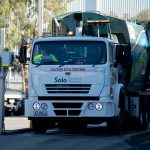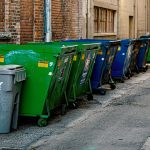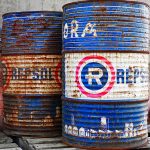A Guide to Assessing Soil for Recycling Services in Adelaide
When undertaking construction, landscaping, or excavation projects, one sometimes overlooked consideration is what to do with the excess soil that has been produced. That is where soil recycling comes in. And while it might appear to be basic dirt, not all soil can be disposed of or recycled in the same way. Understanding how to assess soil and whether it can be recycled can help landowners, landscapers, and builders save on costs and contribute to sustainable practices. This guide will examine how to evaluate your soil before engaging soil recycling services such as ours, ensuring smooth processing and compliance with government regulations.
Understanding Soil Classification
The first step in assessing your soil is understanding soil classification. Soil is not a uniform substance; it varies widely in composition, texture, and quality. In the context of soil recycling services, classification helps determine whether the soil is acceptable for recycling or must be treated as waste.
Soil is generally classified into three main categories:
- Clean fill (or clean earth) – which is free from contamination and suitable for reuse.
- Contaminated soil – which contains harmful substances like heavy metals, chemicals, or asbestos.
- Inert fill – which includes materials like clay or rock that are stable and non-reactive but may require special handling.
Accurate soil classification is essential before transporting soil to a recycling facility. The classification process usually involves a combination of visual inspection, laboratory testing, and documentation of the soil’s source. For smaller-scale projects, pre-screening can often identify whether further testing is necessary. This not only ensures compliance with environmental regulations but also reduces the risk of rejection at the recycling centre.
Key Contamination Factors to Consider
One of the most important factors in assessing soil for recycling is contamination. Contaminated soil cannot be accepted by most soil recycling services without prior treatment or special approvals. Understanding what qualifies as contamination can help you prepare and potentially salvage some or all of your excavated material.
Common contaminants include:
- Chemical residues from industrial use or previous construction.
- Rubble and foreign materials like bricks, concrete, and plastic.
- Organic waste that could lead to decomposition and instability.
- Asbestos or heavy metals that pose environmental and health risks.
Landowners and builders should research the history of their site to determine the potential for contamination. For example, former industrial sites or areas near fuel stations are more likely to contain pollutants. If contamination is suspected, a detailed environmental site assessment may be required before the soil can be considered for recycling.
Having a clear idea of the contamination level helps you decide whether to proceed with soil recycling services or explore alternative disposal options.
Clean Earth Disposal: What Qualifies?
The term clean earth disposal refers to the handling of soil that is free from harmful contaminants and suitable for reuse in construction or landscaping. In Adelaide, there are specific guidelines to ensure that soil qualifies as clean earth. Failing to meet these standards can result in the soil being classified as waste, which in turn will attract higher disposal fees.
To qualify for clean earth disposal, the soil should:
- Be free of contaminants, including chemicals, oils, and heavy metals.
- Not contain foreign objects such as plastics, bricks, or timber.
- Have a consistent texture and composition, without large clumps of construction debris.
Some soil recycling services offer pre-acceptance testing or guidelines that help clients determine if their soil meets clean earth disposal standards. By preparing your soil according to these requirements, you improve the chances of it being accepted, avoiding unnecessary tipping fees and transportation costs.
The Role of Pre-Screening and Testing
Pre-screening is another important step in preparing soil for recycling. It involves inspecting the soil visually and, if necessary, taking samples for lab testing. This proactive step can help identify issues early and allow time for correction or reclassification.
Most soil recycling services recommend pre-screening for all projects, even small-scale ones. It helps in:
- Confirming the soil’s classification.
- Identifying contamination early.
- Preventing delays in project timelines.
- Reducing the risk of costly rejections at disposal sites.
Builders and landscapers can either perform a basic pre-screening themselves or work with professionals who specialise in soil assessment. Investing in this step improves recycling outcomes and ensures a smoother process from collection to disposal or reuse.
The Benefits of Recycling Soil
Soil recycling is not only an environmentally responsible choice, but it is also economically beneficial. With landfill space at a premium and strict regulations in place, recycling helps reduce costs and environmental impact.
Using soil recycling services means:
- Lower tipping fees compared to general waste disposal.
- Reduced need for new fill materials.
- Compliance with environmental standards.
- Supporting circular economy practices by reusing valuable resources.
For builders and landscapers, the ability to recycle soil contributes to greener credentials, which is becoming increasingly important to clients and regulators alike.
Assessing Soil for Recycling in Adelaide
Understanding soil classification, identifying contamination, meeting clean earth disposal criteria, and conducting proper pre-screening are all essential steps in ensuring your excavated soil can be reused effectively. By taking the time to assess your soil properly you can avoid project delays, reduce costs, and support more sustainable waste management practices.
If you’re planning an excavation, construction, or landscaping project, you can learn if your soil is suitable for recycling. Contact the Adelaide Waste and Recycling Centre today on 8295 5077 or via our contact form for expert advice. We’re here to help you make the most of your resources, efficiently, legally, and sustainably.
Adelaide Waste and Recycling Centre
Our friendly operators are available at the AWRC if you need to clarify any further information.


